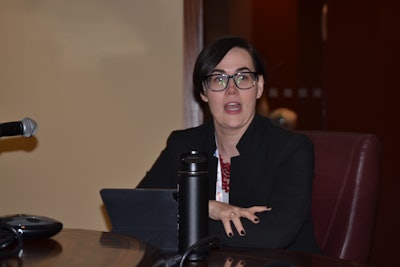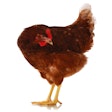
Before the United States government makes any decisions on whether it will allow U.S. poultry producers to vaccinate for highly pathogenic avian influenza (HPAI), it needs to fully engage in conversations with its trading partners.
United States Department of Agriculture (USDA) Under Secretary for Trade and Foreign Agricultural Affairs Alexis Taylor, said such talks are taking place, and if a decision is made to pursue a vaccination program, the talks will certainly continue.
Taylor discussed HPAI vaccination and other agricultural trade matters during a roundtable discussion with members of the media at the 2024 International Production & Processing Expo (IPPE) in Atlanta, Georgia, on January 30.
Conversations and observations
“I think right now we are still trying to learn a lot about what’s going on globally. Obviously, France has moved to vaccination, and others in the EU are talking about it as well,” Taylor said.
Discussions about whether to vaccinate have been going on in the United States, both at the industry level and at the governmental level, with the two parties regularly communicating. She said it is apparent that members of the U.S. poultry industry are “not necessarily on the same page” when it comes to HPAI vaccination.
Taylor said the U.S. has also been actively talking to officials in France, so they can understand how they have handled matters such as surveillance and monitoring of flocks since vaccination has taken place.
Trade partner opinions matter
Learning from France’s example and getting feedback from U.S. producers is important, but perhaps more important is what countries who import or will potentially import U.S. poultry think about HPAI vaccination.
“We have talked to trading partners. We’re watching their reaction to some of this and some of our largest poultry markets, obviously, have a pretty strong reaction as countries go to vaccination,” said Taylor.
Taylor acknowledged that she and those who work in the USDA Foreign Agricultural Service (FAS), which she oversees, are not scientific regulators. As such, FAS works really closely with the staff at USDA Animal and Plant Health Inspection Service (APHIS), relying on their scientific expertise.
But just because it might make good scientific sense to vaccinate, if it isn’t embraced by trade partners, it might not make good economic sense.
“I think as this conversation is going on from the regulatory perspective, we’re also being very thoughtful about market reactions and what types of plans in which we have to be engaging,” Taylor said. “I think it’s very important to keep trade open, and before we go down a path like that, I think we need to be thoughtful about how some of our key markets are going to react, what that impact is going to be, and how do we approach them while this conversation is still going on.”
Taylor said some of the United States key markets, specifically mentioning Asian nations such as Japan and Korea, have been “very cautious” about HPAI vaccination, just as the United States itself is.
But even after a decision is made in the United States, Taylor said, the need for discussions with trade partners will still be necessary “so we can maintain market access, because that’s going to be important, whatever the United States decides.”

















